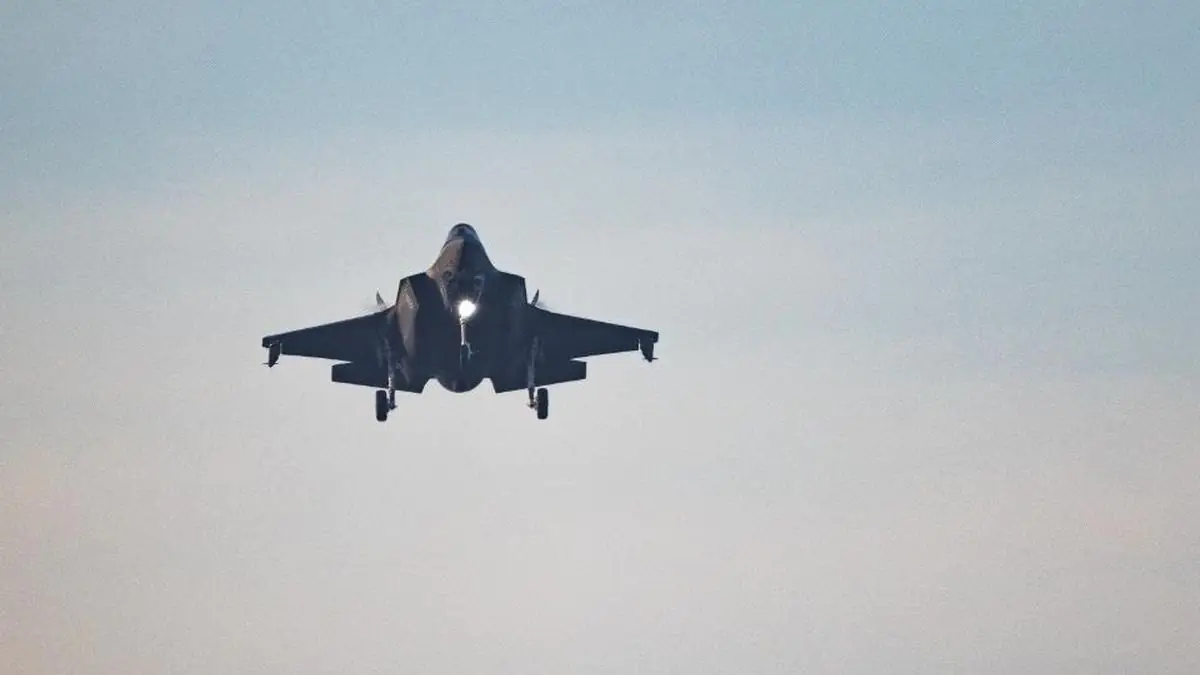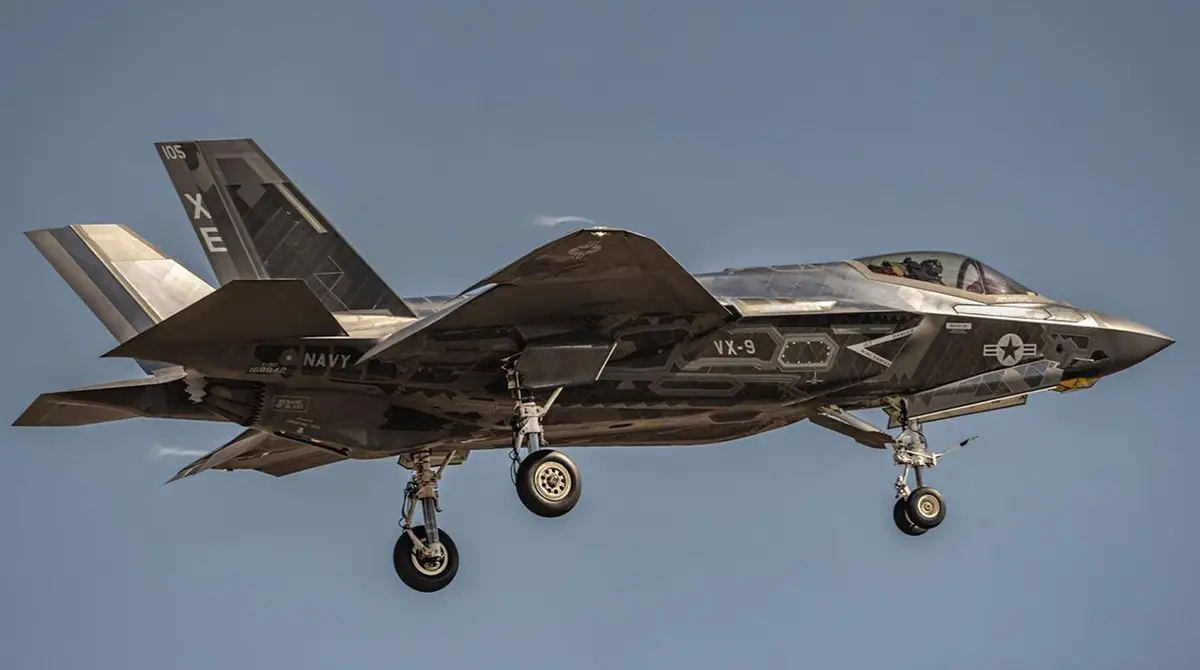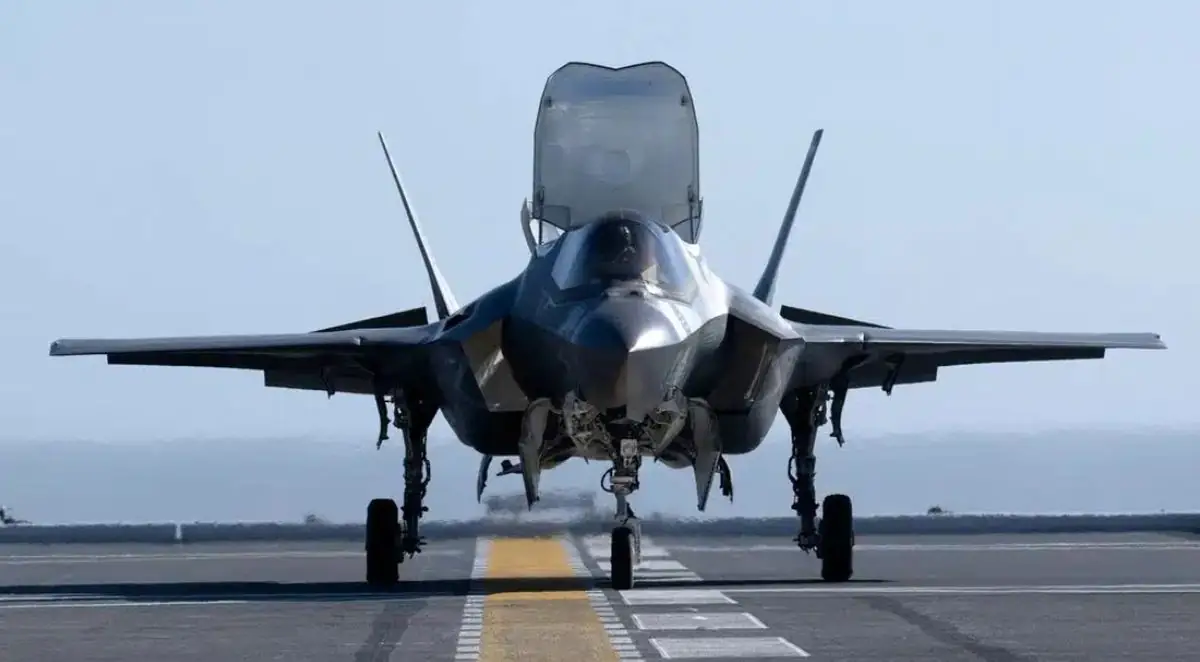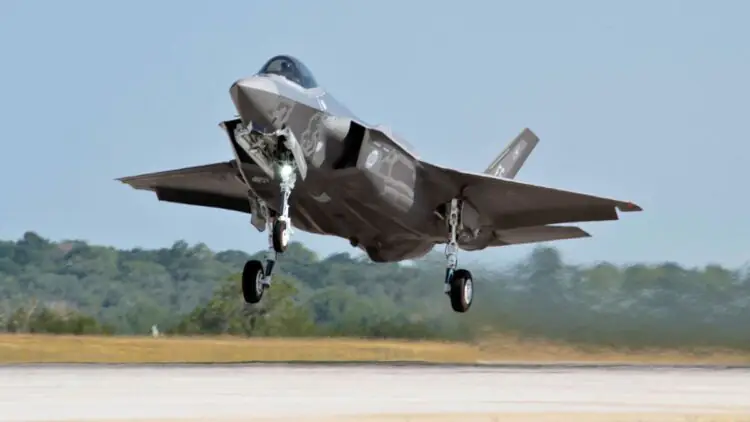The United Kingdom is considering acquiring F-35A fighter jets, potentially linked to its intention to strengthen participation in NATO’s nuclear sharing program. This move likely aligns with a key recommendation outlined in the recently published Strategic Defence Review (SDR).
The document states that “over the next decade, more F-35 aircraft will be needed.” It adds that this could involve a mix of F-35A and F-35B models, depending on military requirements, to achieve the best balance between cost and capability.

Experts and parliamentarians have interpreted this decision in the context of the possible role the UK might play in NATO’s nuclear sharing mission. This arrangement allows non-nuclear countries to host American nuclear weapons and maintain the capability to deliver them quickly in wartime. The UK already possesses its own nuclear deterrent system, Trident, which is submarine-based. However, participating in NATO’s air-delivered nuclear weapons mission would mark an evolution in the country’s commitments to sharing the Alliance’s nuclear capabilities.
During a discussion in the House of Commons, Conservative MP Ben Obese-Jekti raised this issue. He referenced changes in U.S. procurement plans and questioned the Defense Secretary about the costs and capabilities of the different options under consideration.
Regarding Recommendation 46, the 2025 U.S. Naval Aviation plan indicates that the Marine Corps, the largest user of the F-35B, has revised its procurement program by reducing orders for the F-35B by 73 units in favor of the F-35C. This change will increase the unit cost of each F-35B by tens of millions of dollars, he asked. What is the current assessment of the F-35A production queue, and how is the conversion of our remaining F-35B orders to F-35C, as well as the modification of our aircraft carriers to support CATOBAR operations, being evaluated?

Defense Secretary John Healey confirmed that discussions regarding NATO’s nuclear mission are ongoing. “As the honorable gentleman mentioned, the SDR document recommends initiating talks with the U.S. and NATO to enhance the UK’s role in NATO’s nuclear mission,” he emphasized. “We have accepted this recommendation along with others outlined in the review. I won’t comment publicly on the specifics of these discussions, but this is clearly a NATO priority.”
Germany experienced an interesting case a few years ago when Berlin announced plans to purchase 30 Boeing F/A-18E/F Super Hornet fighters to replace its Tornado fleet, which carried a nuclear role. However, at that time, the Super Hornet had not yet been certified to carry the B61 gravity bomb used in NATO’s nuclear arsenal. Later, amid increased security concerns following Russia’s full-scale invasion of Ukraine, Germany decided instead to acquire 35 F-35A aircraft specifically for NATO’s nuclear sharing mission.

Currently, the UK operates only the F-35B variant, which supports short takeoffs and vertical landings from its two Queen Elizabeth-class aircraft carriers. However, only the F-35A model is certified to carry the B61 nuclear bomb, making it essential for the UK’s participation in NATO’s airborne nuclear deterrence.
Any potential purchase of F-35A jets by the UK would likely aim to enhance operational interoperability with allies and strengthen NATO’s strategic deterrence capabilities. This move is seen as particularly important given the increasing threats from Russia and evolving nuclear challenges.
Source: ukdefencejournal









